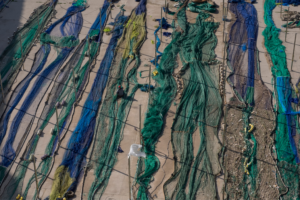
Sunday at the Beach
It is Sunday, the neighbourhood is shining with joy. the
At the Moll de la Fusta, boards and planks are piled up in front of the docked cargo ships. It is a dark night and a young watchman named Joan paces up and down, in times of narrow economies and long shifts. He earns 4 pesetas a day, but the work is light for him. He likes it because it’s a lonely job where only the Montjuic lighthouse winks at him at every turn and he can get inside the shell of his thoughts. And because it brings him back to the port which, for better or worse, is the place of his childhood.
His father died in an accident working as a stoker on a ship of the Transatlantic Company founded by a shipowner named Antonio Lopez who had a full wallet and a black, or too white, conscience. The company’s note informing of his death said that he fell on the furnace plates and was burned to death. His mother, Elvira, did not even have enough to feed them. That is why at the age of seven he had to enter the naval asylum for the orphans of sea workers. It was a hospice so small that it floated, because it was on one of the ships moored to the dock, painted black to remind those children of their tragedy. There he learned to read and write in fits and starts. At the age of twelve he left and began to look for a future even though he didn’t even have a present. Immediately his eagerness for poetry pulled him and the most revolutionary ideas of the moment clung to his chest like mussels to the rocks of the breakwater.
He walks along the Moll de la Fusta and looks in the dark at the cluster of houses squeezed together on the other side of the dock that form the Barceloneta. His girlfriend, Carme, lives in one of them. Some longshoremen passing by, cursing the early morning cold, stop for a moment to listen. Someone mutters verses. They move on without giving it any importance. They already know that the watchman of the Moll de la Fusta is a poet.
It is in that night of the lighthouse and the sleepy port that Joan Salvat-Papasseit’s poem is born in his head, the poem he will write so that everyone will know who he is:
Heus aquí: jo he guardat fusta al moll
Vosaltres no sabeu
qué és
guardar fusta al moll
però jo he vist la pluja
a barrals
sobre els bots
i dessota els taulons arraulir-se el preu fet de l’angoixa,
sota els Flandes
i els melis, sota els ceders sagrats.
Quan els mossos d¡esquadra espiaven la nit
I la volta del cel era una foradada
Sense llums als vagons:
Hi fet un foc d’estelles dins la gola del llop.
Vosaltres no sabeu
qué és
guardar fusta al moll.
Joan Salvat-Papasseit married Carme Eleuterio and they lived in Barceloneta, where he became close friends with the poet Tomàs Garcés and never missed a get-together in Maquinista street with the tailor Salvador Miquel, who sewed with a thread of love for culture and paid the young Salvat for his first book of poems. Unfortunately, death took him when he was only 30 years old. In the Moll de la Fusta there is a statue dedicated to him, but to me it seems too showy, with a Napoleon-like appearance, when he was an autodidact, a self-taught, an anarchist and a dreamer who hated people who boasted. With all poetic justice, the Institut d’educació secundària de la Barceloneta (secondary school) bears his name. And in the reading points of the La Garba library the lyrics of some of his poems tingle.
If the night ever catches you crossing the Moll de la Fusta, stop for a moment, stay silent and put your ear to the ground, to see if the breeze brings a poem.
You may also be interested in

It is Sunday, the neighbourhood is shining with joy. the
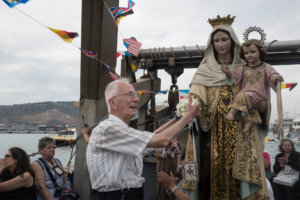
A real institution in La Barceloneta. He was much more
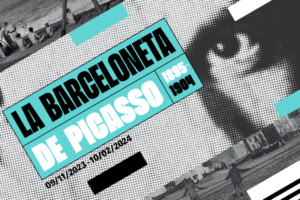
From 9 November to 10 February 2024. On the occasion
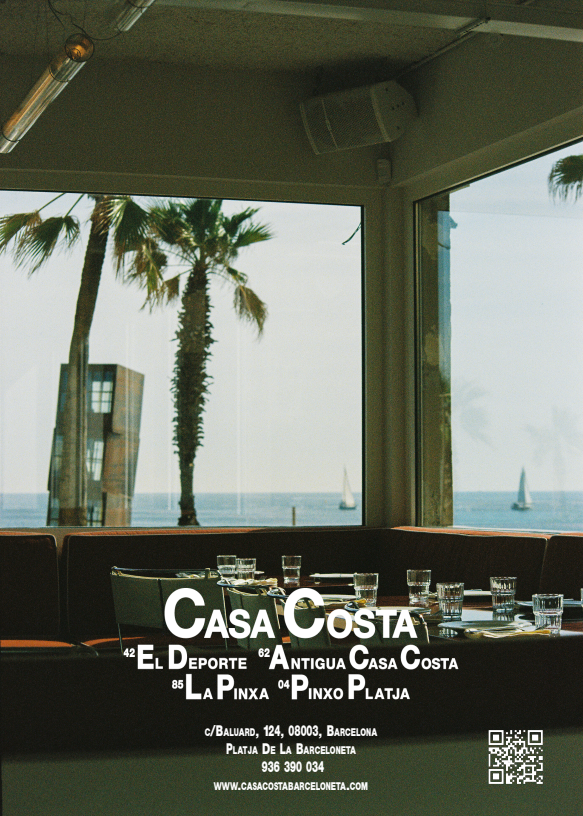

More articles
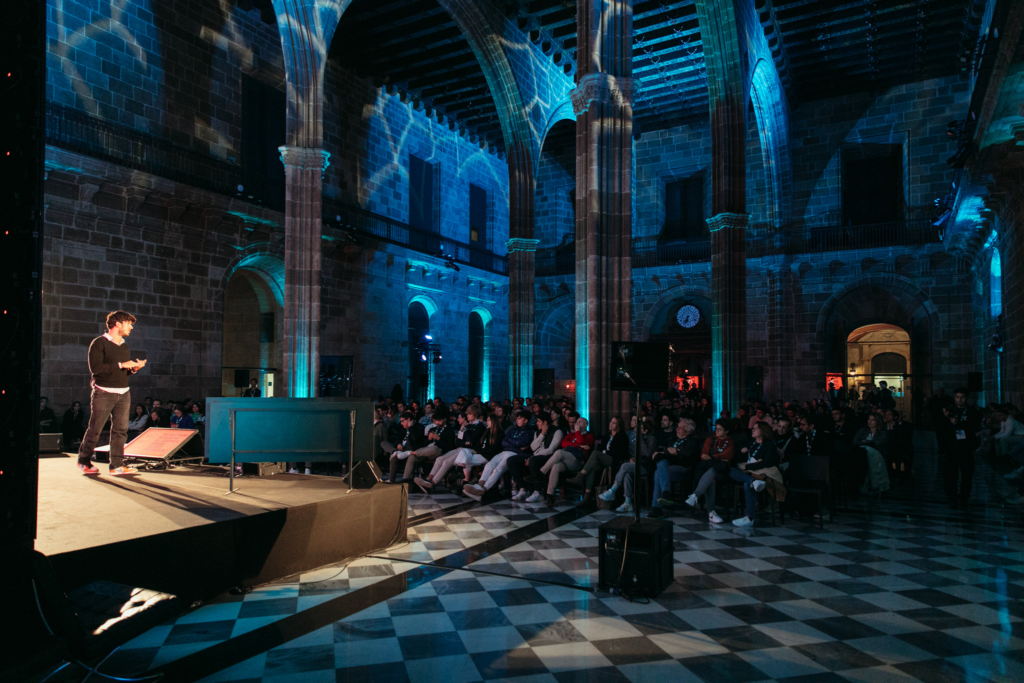
The 4th edition of the benchmark event for the technology community took place on 12

Celebrating Christmas is one of Marina Puerto Viejo’s most cherished traditions. And this year, as
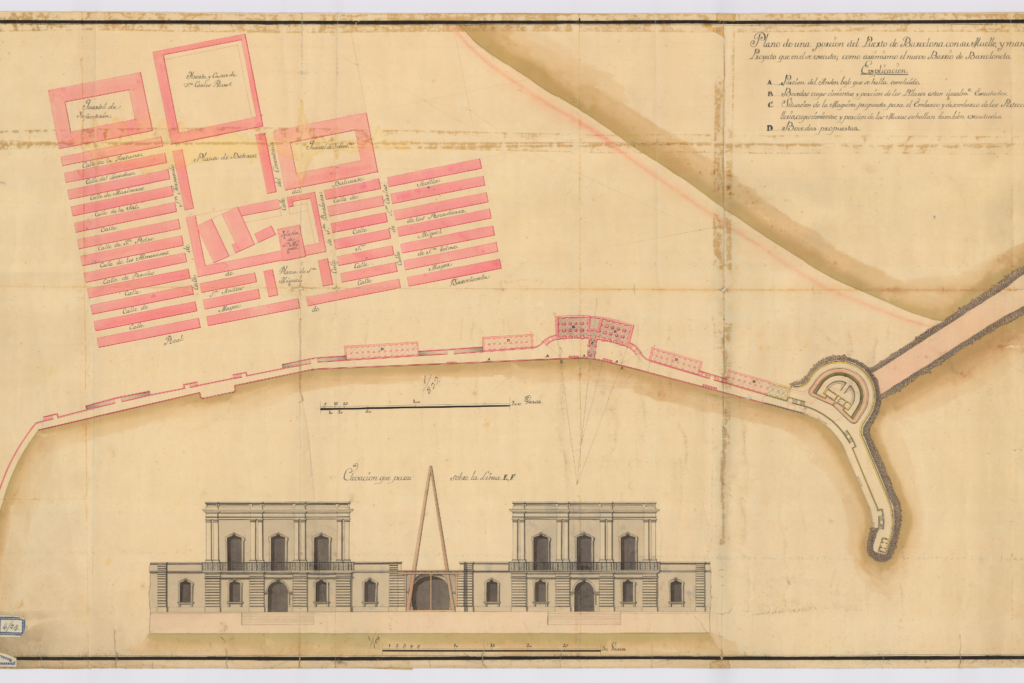
Next to a rubbish bin I’m going to find a very old Gladiator suitcase and

The basket of “La Garba”, raffle on the 5th of January at 12h. Days of
| Cookie | Duration | Description |
|---|---|---|
| _ga | 2 years | The _ga cookie, installed by Google Analytics, calculates visitor, session and campaign data and also keeps track of site usage for the site's analytics report. The cookie stores information anonymously and assigns a randomly generated number to recognize unique visitors. |
| _ga_2DMP7XMBDL | 2 years | This cookie is installed by Google Analytics. |
| Cookie | Duration | Description |
|---|---|---|
| pll_language | 1 year | The pll _language cookie is used by Polylang to remember the language selected by the user when returning to the website, and also to get the language information when not available in another way. |
| Cookie | Duration | Description |
|---|---|---|
| cookielawinfo-checkbox-advertisement | 1 year | Set by the GDPR Cookie Consent plugin, this cookie is used to record the user consent for the cookies in the "Advertisement" category . |
| cookielawinfo-checkbox-analytics | 1 year | Set by the GDPR Cookie Consent plugin, this cookie is used to record the user consent for the cookies in the "Analytics" category . |
| cookielawinfo-checkbox-functional | 1 year | The cookie is set by the GDPR Cookie Consent plugin to record the user consent for the cookies in the category "Functional". |
| cookielawinfo-checkbox-necessary | 1 year | Set by the GDPR Cookie Consent plugin, this cookie is used to record the user consent for the cookies in the "Necessary" category . |
| cookielawinfo-checkbox-others | 1 year | Set by the GDPR Cookie Consent plugin, this cookie is used to store the user consent for cookies in the category "Others". |
| cookielawinfo-checkbox-performance | 1 year | Set by the GDPR Cookie Consent plugin, this cookie is used to store the user consent for cookies in the category "Performance". |
| CookieLawInfoConsent | 1 year | Records the default button state of the corresponding category & the status of CCPA. It works only in coordination with the primary cookie. |
| elementor | never | This cookie is used by the website's WordPress theme. It allows the website owner to implement or change the website's content in real-time. |